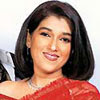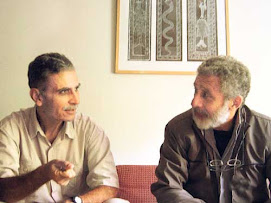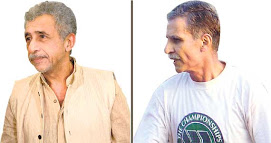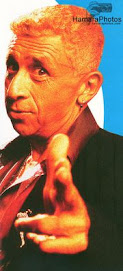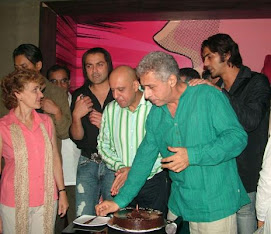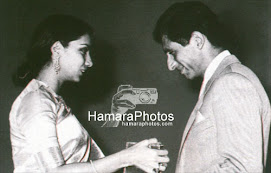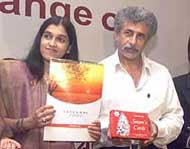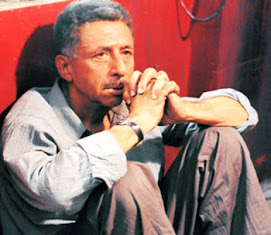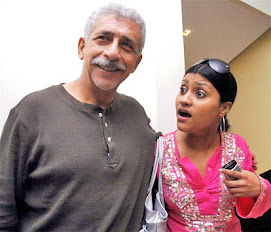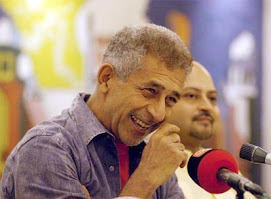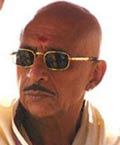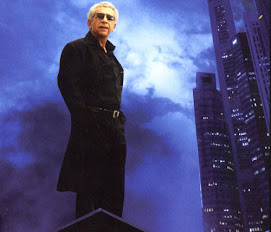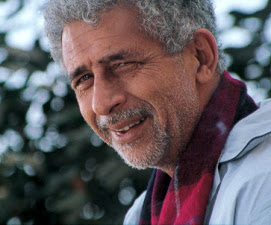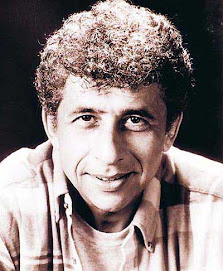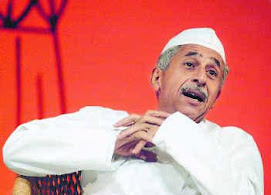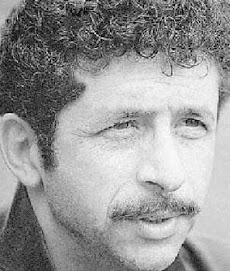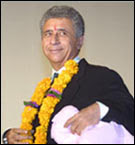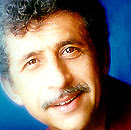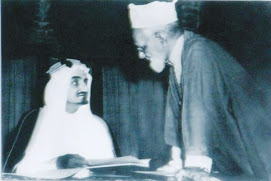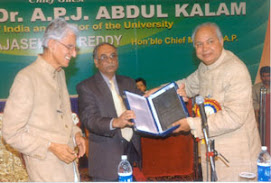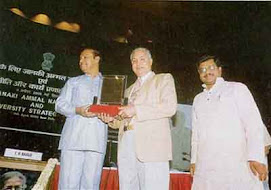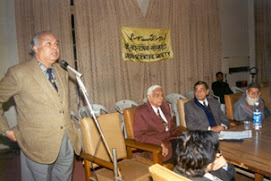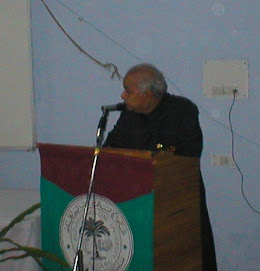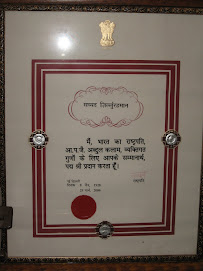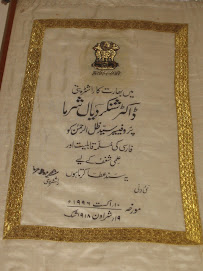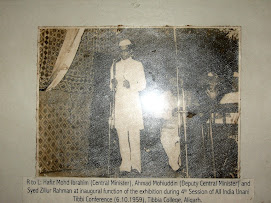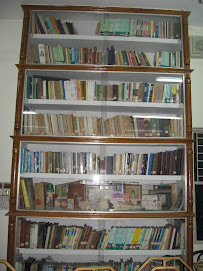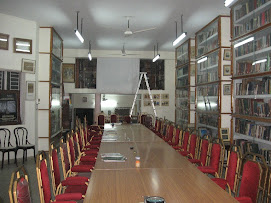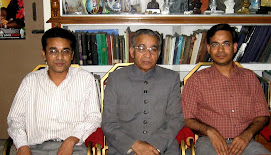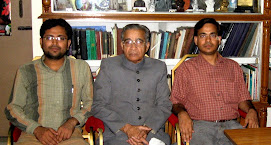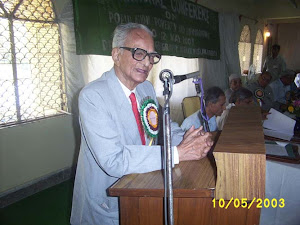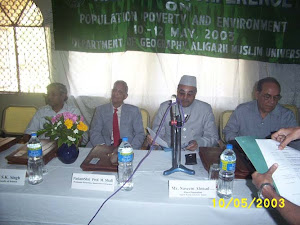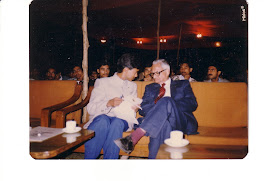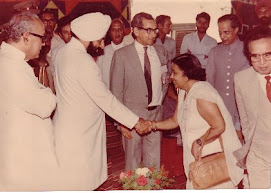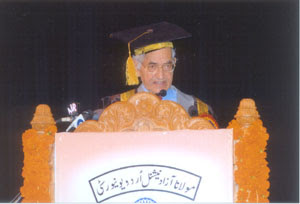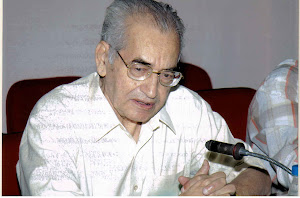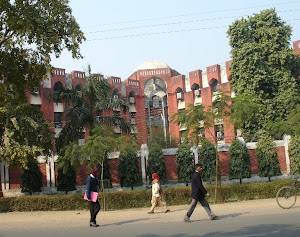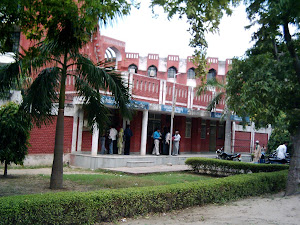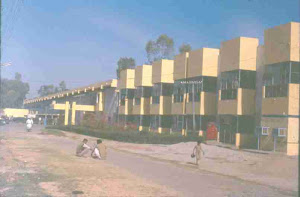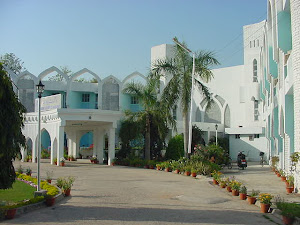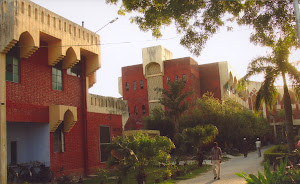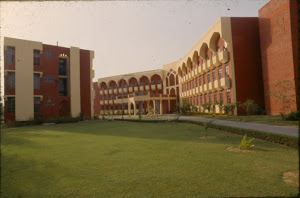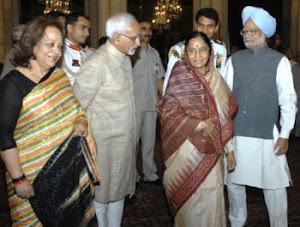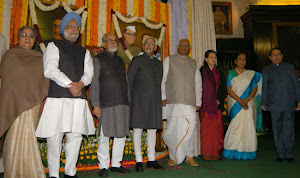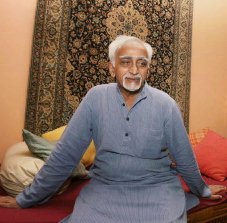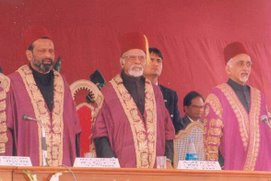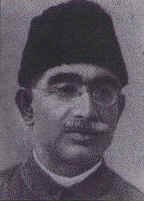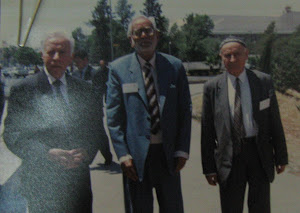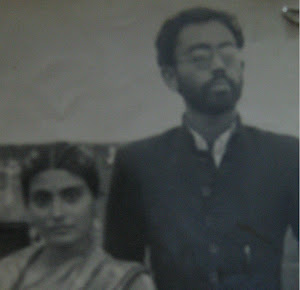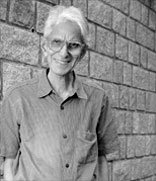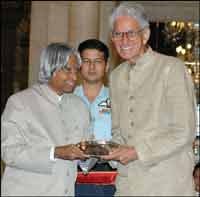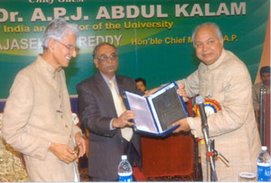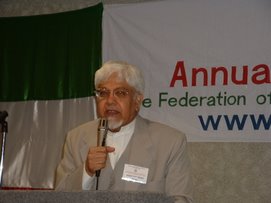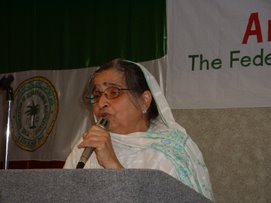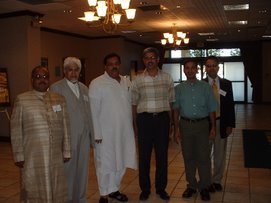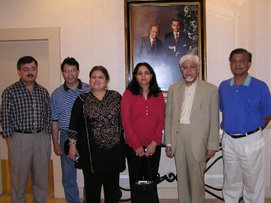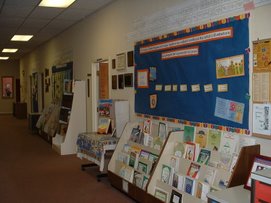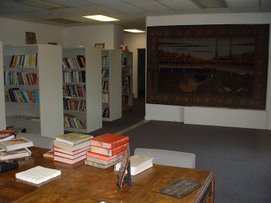
Professor Obaid Siddiqi
Born: 7 January 1932, Basti, Uttar Pradesh
Wife: Dr. Asiya Siddiqi (served in Dept. of History, AMU Aligarh)
Parents: Mr. M. A. Qadeer Siddiqi and Mrs. Umme Kulsum
Born: 7 January 1932, Basti, Uttar Pradesh
Wife: Dr. Asiya Siddiqi (served in Dept. of History, AMU Aligarh)
Parents: Mr. M. A. Qadeer Siddiqi and Mrs. Umme Kulsum
Brother: Prof. Aslam Qadeer (Ex-Dean faculty of Engg. & Tech. AMU Aligarh)
Education : M.Sc. from AMU Aligarh in 1953
Ph.D. from University of Glasgow, UK in 1961
Education : M.Sc. from AMU Aligarh in 1953
Ph.D. from University of Glasgow, UK in 1961
Career:
· Hon. Professor, Founder & Emeritus Director
TIFR National Centre for Biological Sciences, Bangalore
· Chancellor, Maulana Azad National Urdu University, 2005-Till date
· President National Academy of Sciences(NAS), India : 1986-88
· Vice-President: 1983-85
· Council Member NAS : 1974-91
· Member, National Academy of Sciences (NAS), India, 1968- Till date
· Member, National Academy of Sciences, USA, 2003-Till Date
· Sr. Associate. Fellow, Royal Society of London,
· Director: TIFR, National Centre for Biol. Sc., Bangalore, 1993;
· Sherman Fairchild, Distinguished Scholar 81-82, 86;
· Gosney Fellow 72-73,
· Visiting Professor Cambridge Inst. of Tech., USA: 1968, 1970-71;
· Visiting Associate Yale Univ., Dept. of Biophysics in 1966;
· Jawaharlal Nehru Centre for Advanced Scientific Research, Bangalore:
· Hon. Prof. National Inst. of Advanced Studies, Bangalore:
· INSA, TWAS, Maharashtra Academy of Science.
· Pennsylvania Univ., USA: Post doctoral Fellow 61-62;
· Lallor Foundation Fellow, Cold Spring Harbor Lab., USA, 1961
· Res. Scholar, IARI, Delhi: 1957-58
· Lecturer, AMU Aligarh, 1954-57
· Chancellor, Maulana Azad National Urdu University, 2005-Till date
· President National Academy of Sciences(NAS), India : 1986-88
· Vice-President: 1983-85
· Council Member NAS : 1974-91
· Member, National Academy of Sciences (NAS), India, 1968- Till date
· Member, National Academy of Sciences, USA, 2003-Till Date
· Sr. Associate. Fellow, Royal Society of London,
· Director: TIFR, National Centre for Biol. Sc., Bangalore, 1993;
· Sherman Fairchild, Distinguished Scholar 81-82, 86;
· Gosney Fellow 72-73,
· Visiting Professor Cambridge Inst. of Tech., USA: 1968, 1970-71;
· Visiting Associate Yale Univ., Dept. of Biophysics in 1966;
· Jawaharlal Nehru Centre for Advanced Scientific Research, Bangalore:
· Hon. Prof. National Inst. of Advanced Studies, Bangalore:
· INSA, TWAS, Maharashtra Academy of Science.
· Pennsylvania Univ., USA: Post doctoral Fellow 61-62;
· Lallor Foundation Fellow, Cold Spring Harbor Lab., USA, 1961
· Res. Scholar, IARI, Delhi: 1957-58
· Lecturer, AMU Aligarh, 1954-57
Award:
· Padma Vibhushan, 2006
· B.C. Roy Award, 2004
· Sir Syed Life Time Achievement Award, AMUAA New York, 2004
· Pride of India Award, AFMI, USA, 2004
· INSA Aryabhata Medal 1992;
· Goyal Prize 1991;
· Birla Smarak Kosh National Award 1989;
· Padma Bhushan 1984;
· Bhatnagar Award 1976;
· Honorary D.Sc. from AMU Aligarh., BHU Banaras & Jamia Hamdard Delhi.
India has produced many stalwart scholars and scientists in recent times. A few of them have earned Nobel Prize after they became expatriate. On the other hand, for those who opt to work in India, a membership to the US National Academy of Sciences is considered the highest international scientific recognition of their contribution to science. Professor Obaid Siddiqi is one of a few non-US citizens inducted as a Fellow of the prestigious scientific academy. This fellowship bestowed on him brings an honor to the country of his residence, India. The Indian Diaspora joins the citizen of India in feeling proud for Dr. Siddiqi’s achievement.
Obaid Siddiqi started his scientific career at the Aligarh Muslim University as a lecturer after graduating from the university. His romance with molecular biology began long before it became the ‘cool’ area of research of modern times. Realizing Obaid’s inclination towards the field, his teacher-cum-colleague Riyasat Khan of AMU’s Botany Department encouraged him to work on mapping of rust-resistance genes in wheat at the Indian Agricultural Research Institute in Delhi. He then proceeded to work for his PhD at the Department of Genetics at the University of Glasgow. Even before he had completed his degree, Obaid was offered a post-doctoral position at the MIT to work with a giant in genetics filed, Dr. Alan Garen. Alan Garen later moved to the University of Pennsylvania and took his postdoctoral colleague with him. Together they discovered the suppressors of “nonsense” mutations that led to the discovery of “nonsense” codons, the stop signals in the genetic code. In early seventies, his work with Professor Benzer of the California Institute of Technology led to the identification of several genes that control nerve conduction and synaptic transmission. Obaid and his associates’ pioneering work on neurogenetics of fruit fly, Drosophila, has opened up the prospects of an integrated genetic and neurobiological investigation of chemosensory perception.
Obaid’s desire to return to India was fulfilled when Homi Bhabha of the Tata Institute of Fundamental Research, Mumbai, invited him to start a molecular biology group at the institute in early 1960s. Obaid recruited top-class scientists and put the TIFR’s molecular biology group on world map of genetics. Later, with the support of government of India, he founded TIFR’s National Center for Biological Sciences at Bangalore. The mandate of this Center is basic research in the frontier areas of biology and currently it has many distinguished scholars working in various fields of science with state-of-the-art facilities testifying that Obaid’s brainchild, NCBS, will one day flourish into a research institute of international repute.
Obaid has mentored energetic scholars, who have distinguished themselves in the field of genetics and are occupying highly visible academic positions in India and abroad. The list includes: R. N. Singh, Vijay Sarthy, Satpal Singh, Sheela Dhonde, Veronica Roderiques, Kavita Arora, V. C. Jayaram, Shahid Siddiqui, Ravi Rajan, Rashid Mistry, Swati Joshi, Champakali Ayub, and Anil Gupta.
Obaid’s name is held in high esteem among the biologists. He has published hundreds of original research papers and articles in internationally recognized scientific journals and lectured at prestigious institutions. He has been awarded almost all distinguished scientific honors. He has been a visiting Professor at Massachusetts Institute of Technology and Gosney Fellow and twice Sherman Fairchild Distinguished Scholar at the California Institute of Technology. He is a life Member of Clare Hall, Cambridge University. A past president of the Indian Academy of Sciences, Fellow of the Indian National Science Academy, the National Science Academy, The Royal Society of London, the Third World Academy of Sciences Trieste, and Foreign Associate of the U.S. National Academy of Sciences, Washington. Prof. Siddiqi is a recipient of the Shanti Swaroop Bhatnagar Prize, The Aryabhat Medal, The Indian National Science Academy Jubilee Medal, The Goyal Prize, the Birla Smarak Kosh Award for Biological Sciences, Bhasin Award, GM Modi Innovative Science and Technology Award, The B.C. Roy Award for Biomedical Research, and the Indian civil honor Padam Bhushan.
The Aligarh Muslim University, Banaras Hindu University and Jamia Hamdard have conferred honorary D.Sc. degrees on Professor Siddiqi.
Obaid Siddiqi was born on 7th January 1932 in Basti to a family of scholars. His siblings have also distinguished themselves in academic medicine, science, engineering, social, and literary fields. In his youth, he wanted to be a professional photographer; however, it appears that his uncle’s persuasion directed him to science and his ambition to photographing turned into ‘mapping’ of nature’s mysteries. Although he is in his early seventies, he keeps himself engrossed in scientific research as an Emeritus Professor of Molecular Biology at the NCBS. It is good to know that Obaid’s life is not just science; he has a keen interest in sports and literature. He is very fond of Urdu poetry and Allama Iqbal’s following verse fits him well: BaRi mushkil se hota hae chaman meiN deedawar paeda.
(By Zafar Iqbal, Ph.D., 19105 Warrior Brook Drive, Germantown, Maryland.
The material help received from Professor Indira Chowdhry of TIFR Archives, Bangalore is highly appreciated).

